Best Interactive AI Learning Tools for Kids: Top Apps and Platforms to Get Started
Best Interactive AI Learning Tools for Kids: Top Apps and Platforms to Get Started
Introduction: The Future of Learning Is Here – And It’s Got Your Back
Imagine if your online courses could sense when you’re breezing through a topic or when you’re stumped and need extra help. That’s precisely what today’s Artificial Intelligence-powered Learning Management Systems (LMS) for courses are all about – creating a study experience that feels like it was designed just for you. Think of it as a super-smart digital tutor available 24/7, knows your strengths, helps you navigate tricky subjects, and ensures you’re never bored or overwhelmed.
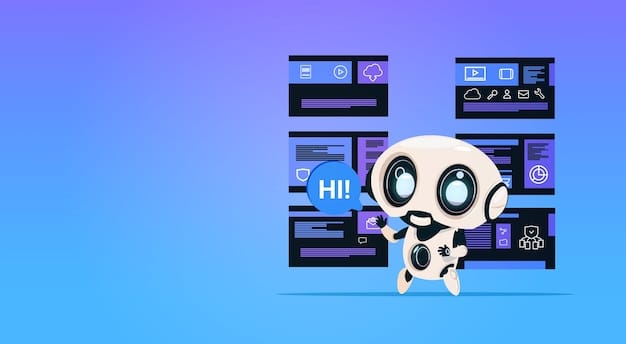
With Artificial Intelligence learning apps leading the charge, these systems go beyond storing course materials. They analyze your progress, tailor every quiz and lesson, and deliver an engaging learning experience that’s both smart and fun. Want to learn at your own pace? Would you prefer a bit more challenge? Need a quick review? This tech does it all, adjusting as you go, so it always meets you right where you are. It’s learning that fits like a glove, with Artificial Intelligence-powered tools that turn every session into a personalized learning adventure. So, whether tackling your toughest subject or diving into something new, your LMS is there, making learning as smooth, interesting, and motivating as possible.
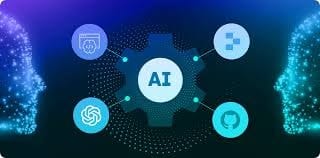
Through AI-powered writing assistants, personalized learning experiences, and interactive projects, children can understand and master topics at their own pace, getting to know technology that shapes their future.
Why AI Learning Apps Are Transforming Education
The rapid rise of Artificial Intelligence learning apps is creating new opportunities for students worldwide. Leveraging AI in education means we can adapt learning experiences to each child’s unique needs, focus, and progress, making it enjoyable and effective.
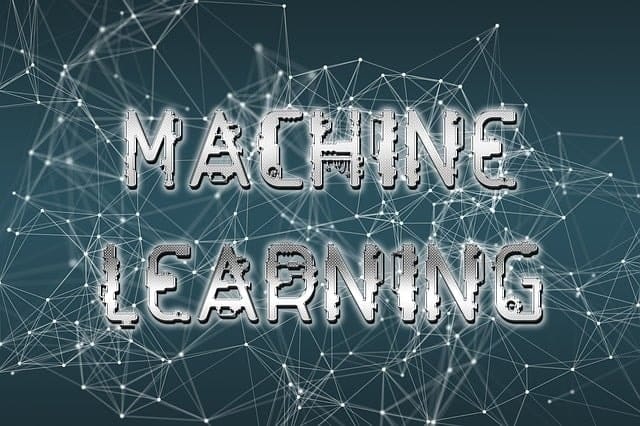
For instance, using machine learning and deep learning algorithms, these apps can create quizzes, videos, and engaging learning experiences that change based on a child’s performance. Instructors and parents love AI because it provides personalized attention and adapts to different learning styles. The result? Children explore subjects with tailored guidance that keeps them excited and engaged, helping them build strong foundations in math, reading, or even coding.
The Rise of AI Learning Apps for Kids in Today's Digital World
The AI apps leverage AI algorithms and deep learning to make every lesson more engaging and effective. From personalized quizzes to video generation, these apps offer engaging learning experiences that feel like a game rather than a chore. Whether your child is exploring science, math, or language, these platforms provide a more immersive, enjoyable way to learn at their own pace. With so many options, the future of learning is now here, and it's fueled by the exciting possibilities of AI.
How AI Tools for Learning and Development Enhance the Child's Educational Experience
AI is revolutionizing the way kids interact with educational content. By using AI-powered tools, kids can enjoy a personalized learning experience tailored to their pace and style. These tools track progress, offer real-time feedback, and adapt to the child's needs, making learning more efficient and effective. The ability to identify areas where students need additional support ensures that they’re never left behind, providing personalized attention whenever they need it most.
One of the best features of AI tools for learning is the ability to provide interactive experiences like content creation, text descriptions, and project planning. Whether your child is designing a game or creating a story, these tools encourage critical thinking and problem-solving while allowing kids to explore their creativity. Through machine learning, these apps get smarter over time, adjusting their approach to meet your child’s evolving needs. It’s a whole new way of learning that blends fun and educational value seamlessly, making every learning moment count.
Popular AI Learning Apps That Make Learning Fun and Engaging
Learning doesn’t have to feel like a task. With the help of AI-powered apps, education is transformed into a fun and interactive experience. Apps like Duolingo use AI algorithms to teach languages with addictive, game-like features, while platforms like Khan Academy Kids offer personalized math and reading lessons. These apps incorporate engaging features like generative AI, which helps students create quizzes, images, and even videos, making the learning process more enjoyable.
What makes these AI tools stand out is their ability to create quizzes that match each child’s learning progress, ensuring they’re constantly challenged without feeling overwhelmed. Some platforms even provide AI-powered writing assistants, which guide students in improving their writing skills by offering suggestions and tips on grammar and structure. From personalized feedback to fun, interactive lessons, these AI learning apps make sure that learning is an adventure your child will want to embark on every day.
Introducing Machine Learning for Kids: Early Exposure to Advanced Concepts
Believe it or not, machine learning is no longer reserved for adults or tech experts. With the rise of AI, children are now able to learn about this advanced concept in a way that’s both fun and understandable. Kids can start exploring machine learning through simple activities like pattern recognition, sorting data, and even creating their own small AI projects. These early exposures not only teach AI concepts but also spark curiosity and creativity.
By leveraging AI and generative AI features, platforms can introduce children to the basics of machine learning in an intuitive way. For instance, kids can engage in activities where they teach an AI to recognize objects or help it make data-driven decisions based on what they’ve learned. These hands-on activities provide a powerful introduction to the world of technology and set the foundation for more complex skills in the future. Kids who learn about machine learning early on will not only understand how technology works but will also gain a competitive edge in today’s digital world.
The Power of Personalized Learning Experiences with Artificial Intelligence Tools
One of the standout features of AI-powered tools in education is their ability to deliver personalized learning experiences. Rather than a “one-size-fits-all” approach, AI algorithms in these tools identify areas where a child might struggle or excel, adjusting content accordingly. This personalization means kids can learn at their own pace while still feeling challenged. Imagine a world where a child learning math can get instant feedback, additional support, or even a rephrased problem that makes more sense to them. This level of customization is a huge leap forward in educational technology.

AI-powered writing assistants, for instance, can help kids with their language skills, offering real-time corrections and suggesting ways to make their writing clearer or more engaging. Similarly, Artificial Intelligence features such as text descriptions and project planning tools guide children in organizing their ideas or tackling complex topics like research papers. These innovations are fun and help build lifelong skills that students will use far beyond the classroom.

Top Artificial Intelligence Learning Apps for Kids: Fun, Engagement, and Learning Combined
Here are some of the top Artificial Intelligence learning apps that make computer learning interactive and fun, meeting the specific needs of young learners:
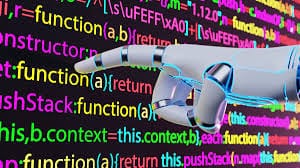
1. Khan Academy Kids
Features: Personalized lessons, AI-driven feedback
Khan Academy Kids is a beloved platform that offers AI-powered tools for young children learning math, reading, and social-emotional skills. This free app provides a wide range of content, from stories and songs to interactive activities tailored to each child’s pace.
2. Prodigy Math
Features: Game-based math, adaptive AI challenges
Prodigy Math uses a fantasy setting where students complete math challenges to progress. Its Artificial Intelligence algorithms adjust question difficulty based on the child's answers, ensuring they are always learning at a pace that suits them.
3. Duolingo Kids
Features: Language learning, gamified lessons
Duolingo Kids introduces children to new languages through AI-driven lessons that keep kids engaged with rewards and levels. The app’s AI-powered tools also adjust language lessons as the child progresses, focusing on areas needing more practice.
4. Osmo
Features: Blends physical and digital learning
Osmo uses hands-on play with tablet-based learning, mixing real-world activities with AI-powered technology. With a focus on math, spelling, and creativity, kids experience the joy of learning through an engaging platform.
5. CodeSpark Academy
Features: Coding basics through fun activities
CodeSpark introduces young learners to programming without requiring any reading, making it a great way for kids to explore coding in a fun and approachable way. Its curriculum includes projects and games, fostering problem-solving and critical thinking.
These tools, each with unique Artificial Intelligence features, give children hands-on experience with technology, all while supporting academic growth
By providing personalized learning experiences, they offer kids tailored feedback, allowing them to progress confidently in their studies.
Machine Learning for Kids: Early Exposure to Advanced Concepts
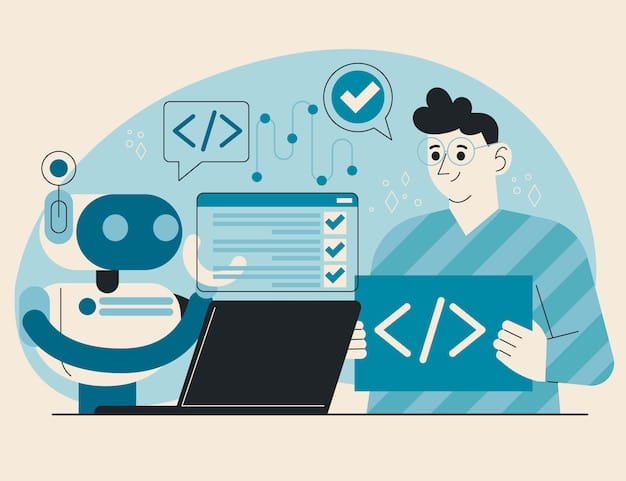
Machine learning is becoming a part of daily life, from Google searches to online games. But what if kids could begin exploring these advanced concepts early? Some Artificial Intelligence learning apps and platforms now offer machine learning activities specifically tailored for young students, making it possible for them to understand how AI and computers work in a kid-friendly way. With games and activities that let children recognize patterns, sort data, and solve basic puzzles, AI tools introduce machine learning concepts engagingly and simply.
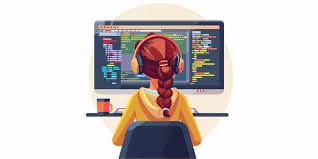
For example, when kids use apps that adapt their questions based on responses, they get a taste of machine learning without realizing it.
How to Choose the Best Al Tool for Learning and Development
Choosing the best AI-powered tool for a child’s education involves more than downloading a popular app. Here’s a checklist to ensure you’re selecting a tool that aligns with your child’s learning style and goals:
1. Check for Age-Appropriateness: Ensure the app’s content is tailored to your child’s level and pace.
2. Look for Interactive and Engaging Features: Tools that include create quizzes, videos, images and games keep learning lively.
3. Assess Safety and Privacy: Look for apps with a clear privacy policy to protect data.
4. Focus on Learning Goals: The best Artificial Intelligence learning apps target specific areas like math, language, or science.
5. User-Friendly Experience: Choose apps that are easy for kids to navigate and engage with, ensuring they enjoy the process.
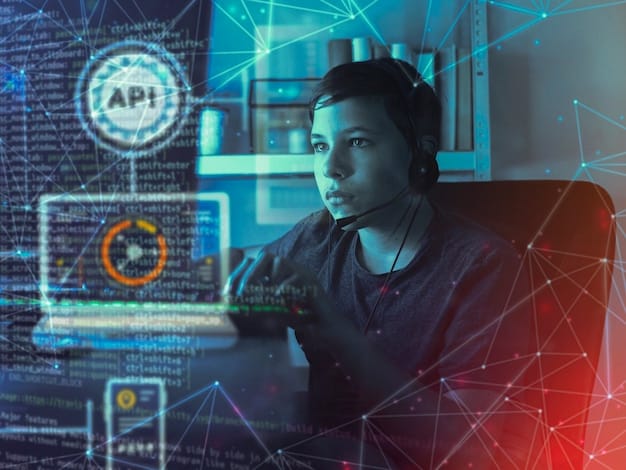
The best AI learning tools are designed to cater to different learning experiences while providing personalized attention and additional support. By reviewing the app or tool's content, safety measures, and interactive elements, you, as a teacher, can ensure your child gets the most out of these powerful educational resources.
Embracing AI in Education for Future-Ready Learners
By providing a personalized learning experience that adapts to each child, these tools ensure that every learner can move forward confidently, enjoying an enriching journey through subjects as varied as language, math, computer coding, and beyond.
Whether it’s video generation, content creation, or generative AI to help kids organize thoughts, the integration of AI in education empowers young minds to explore, grow, explore, discover, review, and discover knowledge at their own pace. As AI continues to transform education, we can look forward to a generation that doesn’t just use technology but understands, creates, and innovates with it.
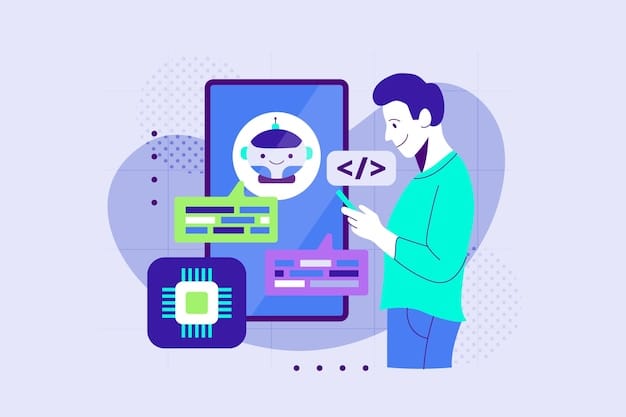
AI-Based Learning Management Systems (LMS): Revolutionizing Personalized Education
In a rapidly evolving digital world, AI-based Learning Management Systems (LMS) have redefined how students interact with course materials and experience the learning process. Integrating artificial intelligence has opened exciting possibilities for delivering personalized learning experiences that adapt to the unique needs of each student, creating a truly engaging learning experience. With the help of AI tools and AI algorithms, today’s LMS platforms don’t just organize resources; they intelligently respond to students’ progress, providing additional support and targeted guidance to enhance every learner’s journey.

The Impact of AI on Personalized Learning Experiences
AI-powered tools' heart is the ability to create data-driven decisions that transform traditional learning into a dynamic, personalized attention approach.
AI learning apps further enrich the LMS ecosystem. For example, with AI-powered writing assistants, students can enhance their writing projects with real-time suggestions. At the same time, generative AI and video generation tools bring projects to life through visual aids and interactive media. Educators, too, benefit from AI features that streamline grading, create quizzes, and simplify project planning by leveraging AI tools to make informed choices that support students' development.
Choosing the Right AI Tool for Personalized Learning
With so many options available, selecting the right AI-powered tool for educational purposes can be challenging. Here are some essential factors to consider:
- User Experience: For learners to fully benefit, the tool should be intuitive and enjoyable to use. A well-designed platform or tool encourages students to explore new ideas and focus on their goals.
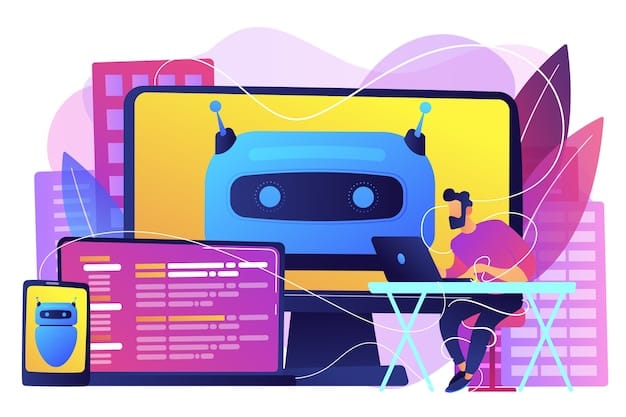
Content Creation Capabilities: Today’s AI apps can assist instructors by automating tasks like generating images and text descriptions for courses, developing course content pages, and creating research papers or project planning page templates.
- Progress Tracking: Effective LMS platforms should provide data-driven insights and actionable feedback to students and teachers, offering a clear page for monitoring progress over time.
- Adaptability: Look for AI-powered tools that customize learning experiences based on individual needs, helping learners stay engaged with free, focused course materials tailored to their growth.
Considering these considerations, educators and students can benefit from tools that deliver a supportive, AI-powered learning journey filled with engaging,knowledge-driven insights.
Leveraging AI to Enhance Teaching and Learning
AI tools for education are designed to cater to diverse learning needs by providing course content that adjusts based on students’ comprehension, knowledge and engagement levels. AI technology is beginning to integrate Google-like search functions and computer-generated prompts into courses and materials that help students discover information organically, mirroring real-world research practices.
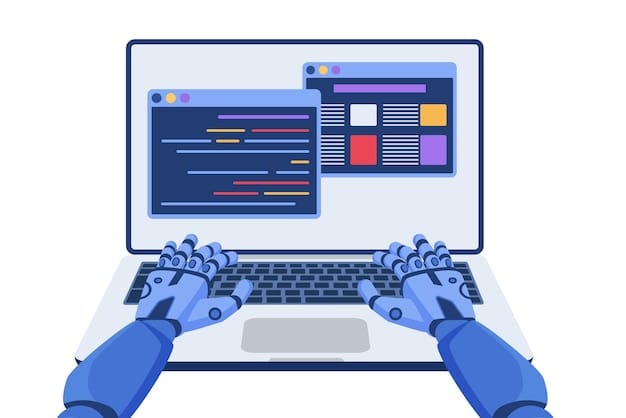
AI-powered tools have reshaped how students and instructors approach course materials, from generating insights and images to organising research papers. For instance, educators can use AI apps to develop custom quizzes, track performance, and provide additional support for challenging concepts. Similarly, learners gain access to tools that facilitate writing and content creation, enabling them to tackle challenging projects and embrace complex topics confidently.
AI’s Role in Supporting Diverse Learning Goals
As artificial intelligence continues to evolve, integrating AI-powered LMS offers remarkable opportunities for personal growth and project development. From offering personalized attention and data-driven insights to customizing learning paths for students with disabilities, AI ensures an engaging learning experience accessible to everyone.
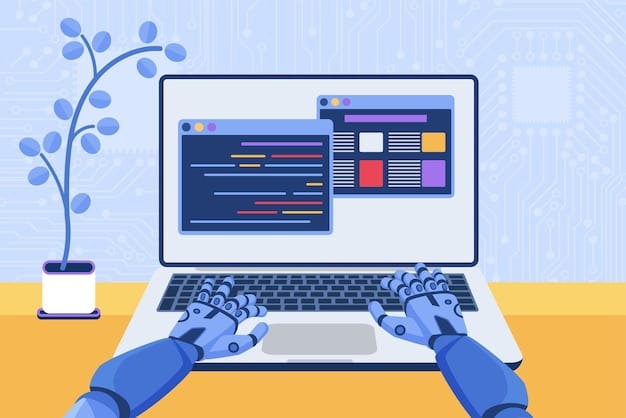
By integrating AI-powered writing assistants and generative AI, LMS systems provide a seamless learning environment that doesn’t just meet educational standards but adapts to individual needs. Students can develop skills with interactive elements, while educators benefit from AI-driven tools that reduce administrative load and enable them to focus on meaningful engagement with students.
Conclusion: A Future of Limitless Learning Opportunities with AI
AI-based Learning Management Systems represent the future of education, blending technology with human elements to create engaging learning experiences that are unique to each learner. These systems are reshaping daily life in educational settings by promoting data-driven decisions, supporting specific needs, and enabling students to progress through courses at their own pace. With the right AI-powered tools, educators and students can look forward to a future where education is as enjoyable and effective as it is transformative.
Conclusion: Why Codeyoung?

So, yep, let's forget the typical, boring lectures. Codeyoung dials up the fun with hands-on projects, wild creativity, and challenges that are as addictive as their favorite games. It’s like a secret lab where young learners craft their apps, build games, and even tackle real-world problems!
What makes Codeyoung stand out? It’s not just the coding – it’s the journey. With mentors who are both coding wizards and your kid's biggest cheerleaders, Codeyoung goes above and beyond to make sure every lesson is packed with excitement, personalization, and growth. So, whether they’re just getting started or already have big ideas, Codeyoung is where young coders go to unleash their inner tech genius. For kids ready to dream big and create even bigger, Codeyoung is the playground, the lab, and the launchpad all rolled into one. Buckle up – the future starts here!
FAQs About Artificial Intelligence Learning Apps
1. What are the top features to look for in Artificial Intelligence learning apps for kids?
The most beneficial features are adaptive learning paths, interactive visuals, and ease of use. Ensure the app offers a fun, safe, and engaging experience while maintaining educational quality.
2. How can AI learning apps benefit cognitive development?
By incorporating problem-solving exercises, logical puzzles, and memory-enhancing games, AI apps stimulate various cognitive functions crucial for well-rounded development.
3. Why is early exposure to Artificial Intelligence learning apps essential?
Familiarizing children with AI-powered tools early on can help them develop digital literacy, promote adaptability, and open up exciting possibilities for future learning.
4. How do parents choose the best AI tool for learning?
Consider your child’s specific needs, interests, and the educational quality of the app. Many apps offer free trials, which can help determine if it’s a good fit.
5. What role does gamification play in AI-based learning?
Gamification adds motivation through rewards, levels, and achievements. These elements make learning enjoyable, helping kids stay interested in the material and progress at their own pace.
Comments
Your comment has been submitted